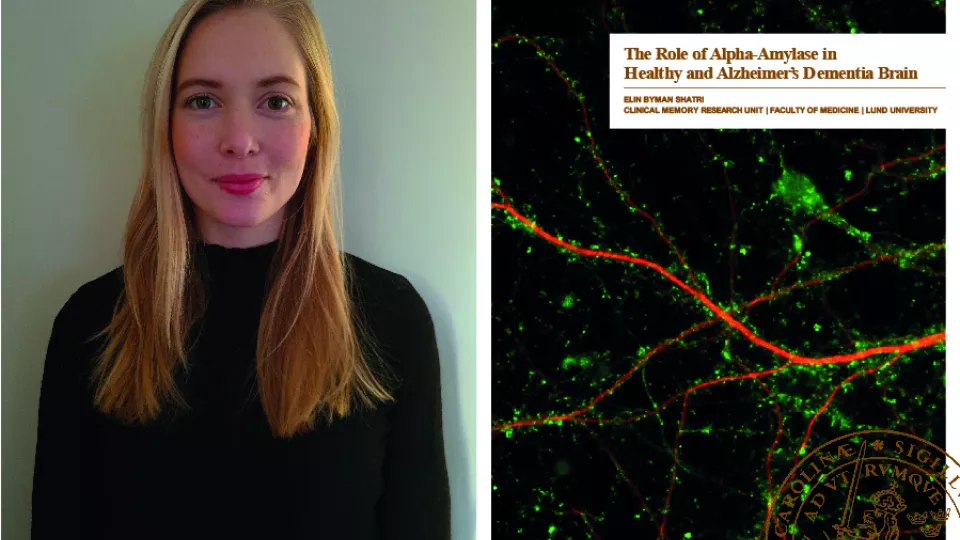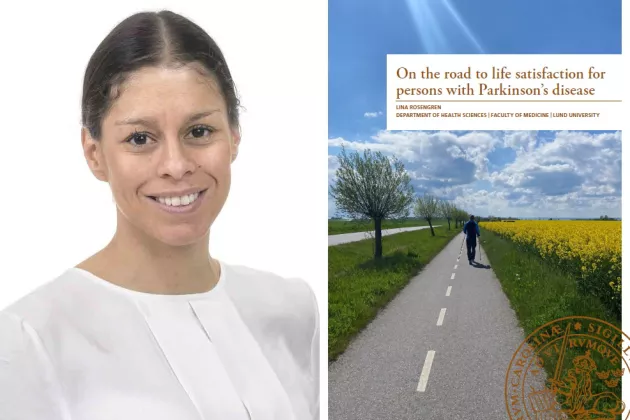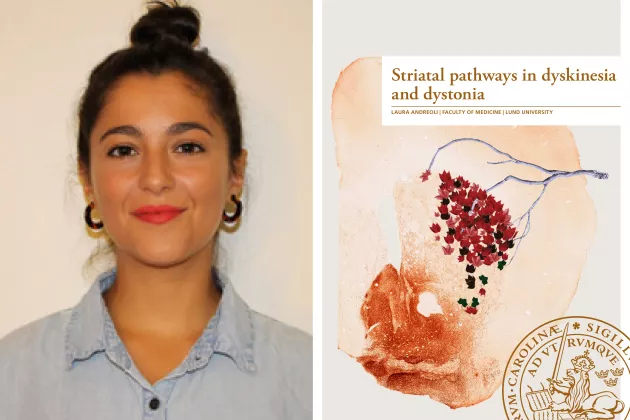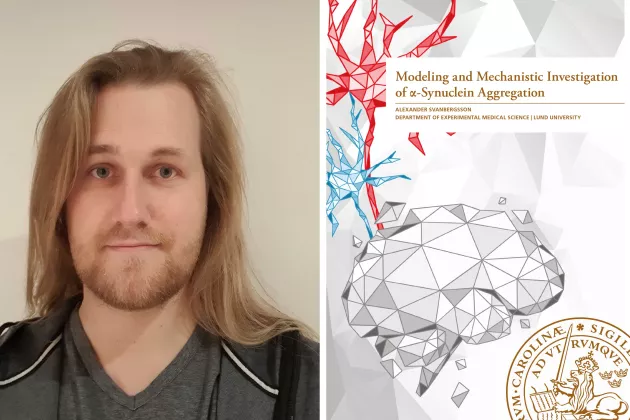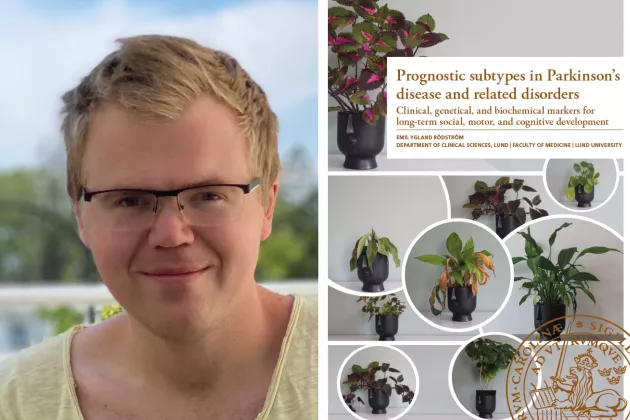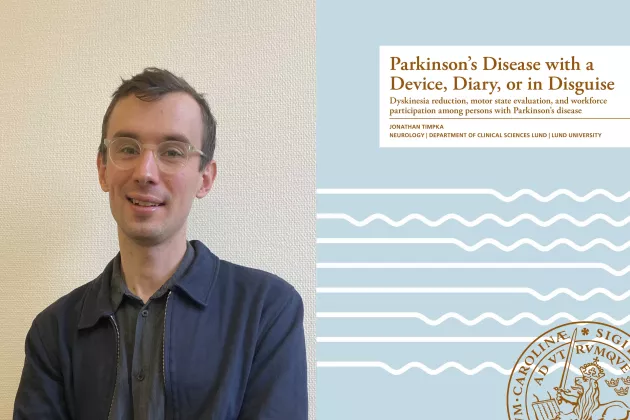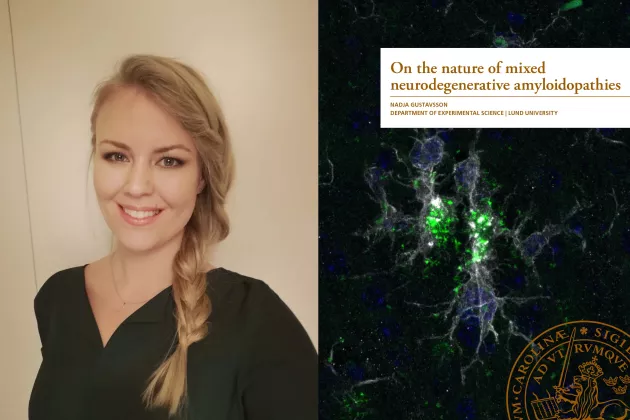Tell us about your research!
The enzyme alpha-amylase has long been known to be abundant in saliva and the gastrointestinal tract, where it helps digest large carbohydrates.My research project has shown that this enzyme also seems to have an fundamental function inside the brain. And that amyloid-beta, a protein implicated in Alzheimer’s disease (AD), may affect the levels of this enzyme in brain cells like neurons and astrocytes.
In my first study, I managed to visualize the presence of alpha-amylase within post-mortem brain tissue from AD patients and healthy controls. Whereas the enzyme was highly abundant in healthy brains, they seemed to be lacking in neurons from AD patients, especially in the dendrites where neurons connect with each other. So we wanted to elucidate why.
When adding the AD-protein amyloid-beta to astrocytes in cell culture, we detected an increase in the alpha-amylase levels. The opposite happened when neurons were treated; amyloid-beta reduced their production of alpha-amylase, especially in dendritic spines where the neuron transmits the signal to the next one.
Finally, I also confirmed the implication of alpha-amylase in AD in a clinical study (MDCS). The copy numbers of the gene encoding for alpha-amylase varies in the human population. In this cohort, participants with a higher number of copies had a lower risk of developing Alzheimer’s disease during the follow-up time. Interestingly, they also had better episodic memory. Hence, alpha-amylase seems to be involved in some kind of resilience to develop the disorder.
Alpha-amylase seems to be implicated in AD. What would you guess are the mechanisms?
The function of alpha-amylase in nature is to break down large carbohydrates such as glycogen. And the brain contains storages of glycogen as a backup to be broken down into glucose whenever needed. Our studies indicate that also neuronal and astrocytic alpha-amylase can break down glycogen. Degradation of glycogen is important for memory formation and therefore loss of alpha-amylase might lead to impaired glycogen degradation and reduced memory formation. Interestingly, alpha-amylase is present in synapses and dendritic spines where molecular processes important for long-term memory and long-term potentiation happen. Neuronal signaling consumes a lot of energy, so it is logical to guess that alpha-amylase could be essential in making energy available at critical time points. Still, this is for us and other researchers in the field to confirm, hopefully within the near future.
How did you end up at MultiPark?
I did my master project in molecular biology at a lab close to my current supervisor, Malin Wennström, at the Wallenberg lab in Malmö. Towards the end, Malin Wennström announced a thesis project that seemed very interesting to me. I applied, but she had already got another candidate. Thus, I continued to work as a lab assistant in the lab where I did my master thesis. What I didn’t know was that Malin saved my application. One day she just knocked on the door to our lab and asked if I wanted to pursue another Ph.D project in her group as she just got support from the Swedish research council. I just couldn’t believe it. And then I started.
What have you enjoyed the most during your research education at MultiPark?
To be honest, it has not been easy for us in Malmö to join the seminars and activities offered by MultiPark on a regular basis. That is a pity because I really enjoyed the ones I attended. If one has to say something positive about the pandemic, it would be that it has made it easier for us to participate in lectures via zoom.
The travel grants have also been beneficial for me to attend conferences.
What have been the most challenging aspects of your Ph.D.?
This is nothing unique to me, but to get your articles ready in time is stressful to most of us. The expectations of producing data that are robust enough to be publishable are really challenging, especially halfway through your PhD when you realize that you already spent 1.5 years on something that might never work out.
And the most rewarding?
This is the other side of the coin, when everything falls in place and things just start to work. In the end, one single discovery is enough to outweigh months of failures; then it feels worth all the efforts.
Having wonderful colleagues and being in an inspiring and creative working environment of course also helps. And the importance of feeling that you contribute with something to the field should not be underestimated.
What do you like to do when you are not at work?
Well, I have two kids, one who is younger than a year. Thus, most of my time is spent with them and together with friends. We have a cabin in Västergötland which we use to visit.
What advice do you want to give to new Ph.D. students?
It is wise to structure the time and set up concrete goals already from the beginning. For me, that reduced the stress. To have the freedom to take my own initiatives also helped me to keep the motivation up. It is more fun if you have the possibility to try your own ideas and not only to follow what your supervisor designs for you to do.
What happens after your defence?
First, I will take some maternity leave. Thereafter, my aim is to continue research, preferably in academia, but I would not say no if there happens to be an opportunity in the industry.


